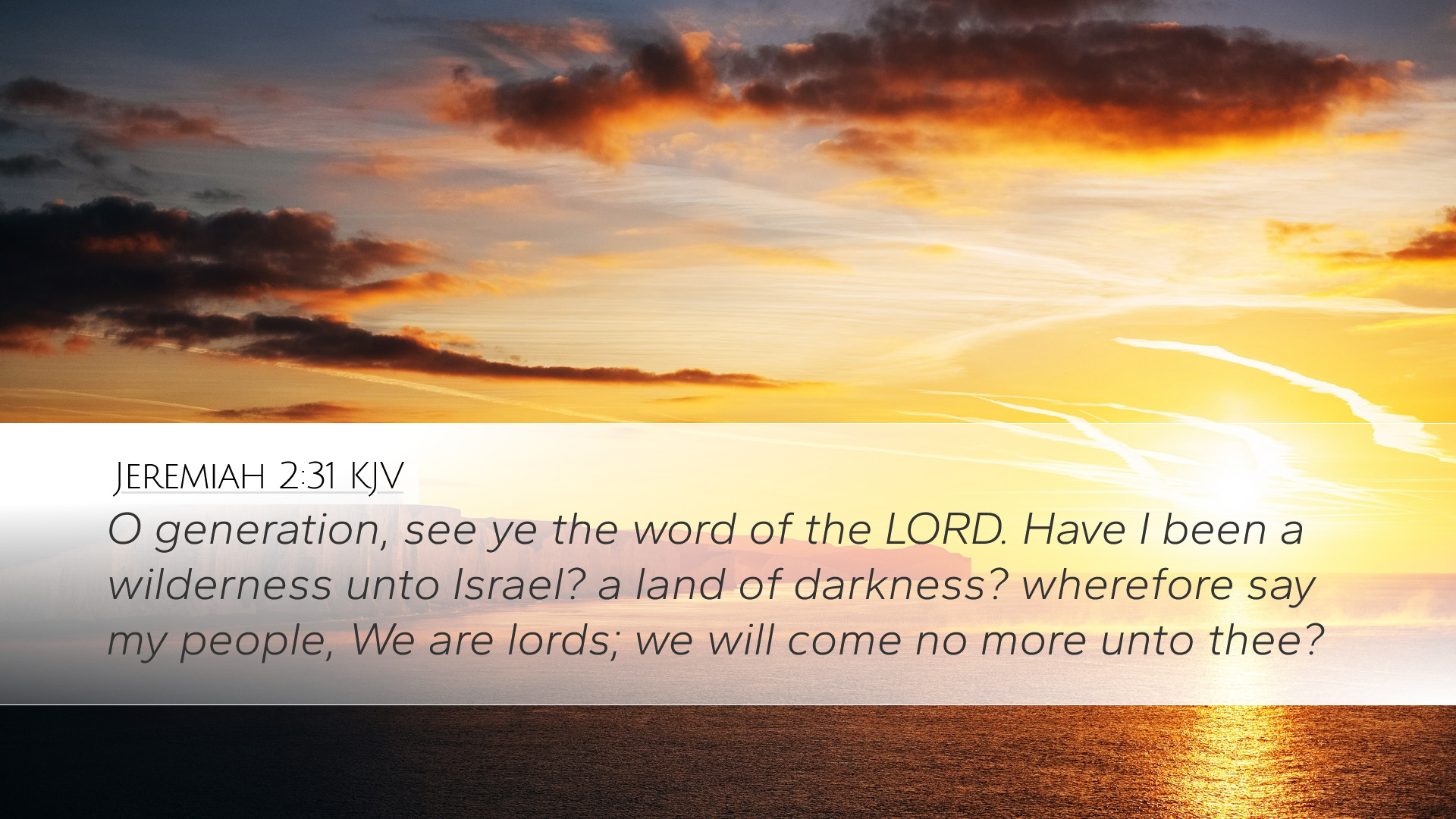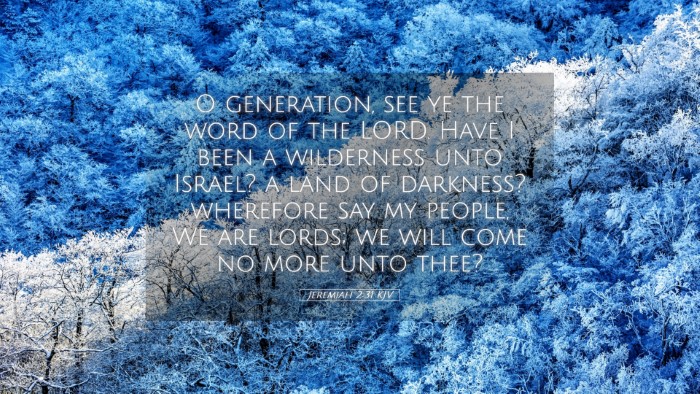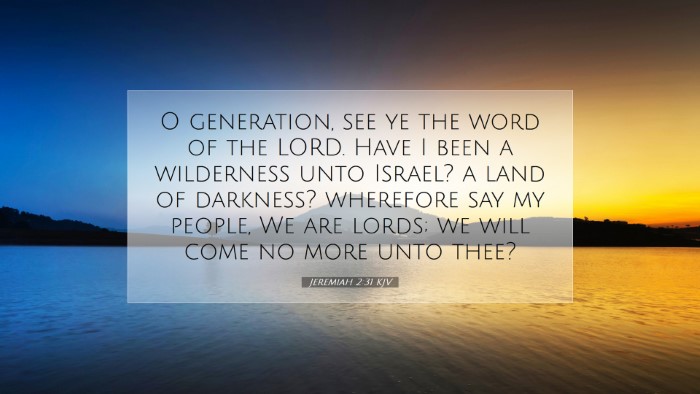Commentary on Jeremiah 2:31
Verse: "O generation, see ye the word of the Lord. Have I been a wilderness unto Israel? a land of darkness? wherefore say my people, We are lords; we will come no more unto thee?"
Introduction
This verse from the book of Jeremiah embodies the poignant dialogue between God and His people, accentuating their rebellion and spiritual blindness. The prophetic voice of Jeremiah, as one called to speak on behalf of God, calls for reflection and reckoning from Israel. This commentary seeks to distil insights from revered public domain commentaries including those of Matthew Henry, Albert Barnes, and Adam Clarke, enriching its exploration of the theological, moral, and historical implications of the text.
The Generational Address
In the initial call, "O generation," we notice a divine lament directed towards the people. The term “generation” speaks to the collective identity of the people of Israel, implying a shared responsibility for their transgressions.
Matthew Henry expounds that God, in addressing a whole generation, emphasizes the weight of responsibility that every individual bears within the covenant community. The call, therefore, is not simply an indictment but a poignant reminder of their covenant relationships and the expectations tied therein.
God's Sovereign Providence
The rhetorical questions posed by God—"Have I been a wilderness unto Israel? a land of darkness?"—highlight His providential care and guidance. According to Albert Barnes, this is a reflection on the nature of God’s relationship with His people. The wilderness and darkness are indicative of exile, dislocation, and God’s absence in their lives as a result of their choices.
Barnes elucidates that God has been anything but desolate; His providences have continually guided Israel. Therefore, the question serves to unmask the troubling reality of their abandonment and denial of Him.
Spiritual Blindness
The latter half of the verse, "wherefore say my people, We are lords; we will come no more unto thee?" brings forth layers of meaning regarding self-reliance and arrogance. Adam Clarke notes that this assertion of lordship reflects a misguided autonomy. The people of Judah had turned away from God, choosing instead to pursue their own paths.
Clarke observes that this “lordship” is a delusion, blinded by their pride and forgetfulness of their true source of authority. They consider themselves above the law of God and thus fail to recognize their need for divine guidance.
Contextual Insights
Understanding the historical context of Jeremiah’s prophetic ministry is critical in delving into this verse. The backdrop of impending destruction and exile looms large. Both Henry and Barnes inform us that Jeremiah’s call reflects the unfaithfulness of Israel, showcasing their consistent turning away from covenant obedience, ultimately leading to disastrous outcomes.
- Jeremiah's Ministry: Covenant disobedience and the necessity of repentance are key themes.
- Spiritual Decline: The people's refusal to acknowledge their need for God parallels many contemporary issues within the church today.
- Divine Challenges: God's rhetorical questions provoke thought, calling His people toward introspection.
Theological Implications
The implications of this passage extend beyond its original audience. It serves as a timeless reminder of the perils of spiritual complacency and the importance of returning to God. As Henry states, God's patience in the face of Israel's rebellion speaks to His enduring mercy but also foreshadows the inevitability of judgment for unrepentance.
This dialogue prompts pastors and theologians to reflect on the socio-spiritual landscapes of their congregations today. The question remains—do we also possess a semblance of this spiritual defiance, declaring our autonomy while separating ourselves from the divine boundaries set by God?
Application to Church Today
In presenting this timely message, church leaders are challenged to emphasize the importance of humility and reliance upon God. As we witness trends of self-sufficiency, the corporate body of Christ should heed Jeremiah's prophetic call to return before it is too late.
- Introspection: Encourage self-examination within the church community.
- Repentance: Foster environments that promote genuine repentance and spiritual renewal.
- Covenant Responsibilities: Remind congregants of their covenant relationship with God and the obligations that come with it.
Conclusion
The depth of Jeremiah 2:31 beckons a return to an authentic relationship with God, centered on acknowledgment of His authority and faithfulness. The insights drawn from the commentaries of Henry, Barnes, and Clarke underpin the need for a communal and individual renewal towards sincere devotion. As the church grapples with contemporary challenges, the resonant message of Jeremiah serves as both a warning and invitation toward deeper fidelity to the God who has not abandoned His people.


